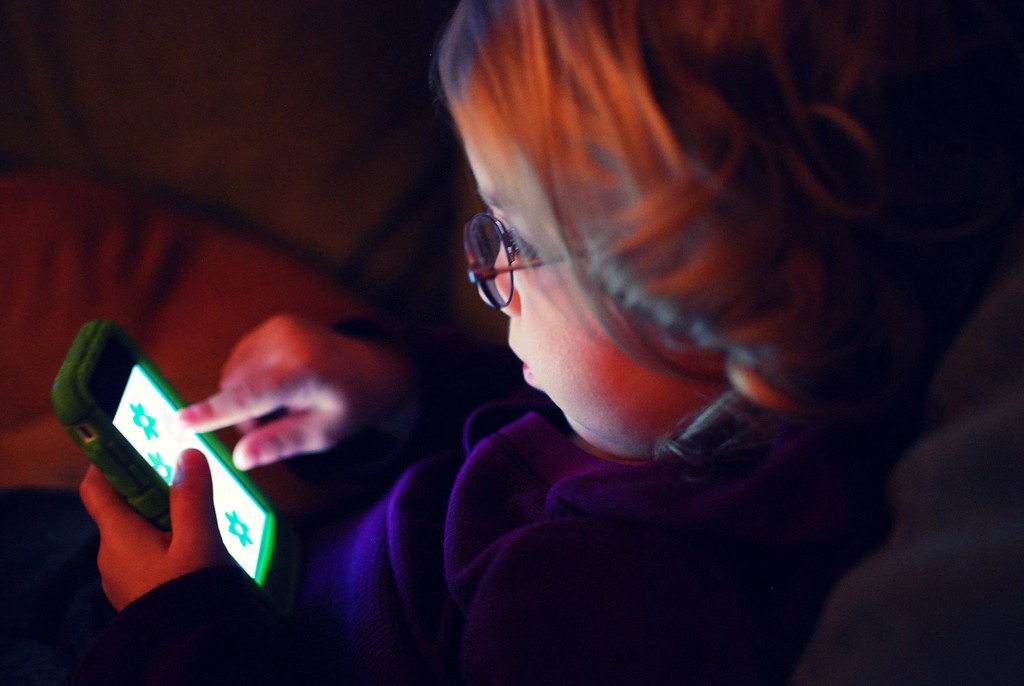Can Science Convince People that Climate Change Is Real?
by The Awl
The Goddard Institute for Space Studies is modeling the future of the planet. It’s our one line of defense against the people who refuse to understand climate change.
A Poem by Sandra Simonds
by Mark Bibbins, Editor

Sandra Simonds is the author of four books of poetry: Warsaw Bikini (Bloof Books, 2009), Mother Was a Tragic Girl (Cleveland State University, 2012), The Sonnets (Bloof Books, 2014) and Ventura Highway in the Sunshine (Saturnalia, 2015).
You will find more poems here. You may contact the editor at poems@theawl.com.
Which Ayn Rand Character Does This Professional Lego Modeler Resemble?
“An article last Thursday about Adam Reed Tucker, a professional Lego modeler, referred incorrectly to the novels of Ayn Rand in describing Mr. Tucker. As a former architect, Mr. Tucker is more like the character Howard Roark, an architect, in ‘The Fountainhead’ — not John Galt, a character in ‘Atlas Shrugged’ who was not an architect.”
How Much Do You Love the Spice Girls? Not This Much.
by The Awl
You’re not their biggest fan. Liz West is.
These Robots Don't Want To Kill You, They Only Want To Blow Up Bombs
by The Awl
An Explosive Ordnance Disposal unit in Iraq.
New York City, January 13, 2015

★★★ Vapor rose from a storm grate and bathed the wheel well of a hybrid parked outside the Apple Store. White plumes topped the buildings off beyond Columbus Circle and billowed from the vent holes in a steel plate on the sidewalk by Grand Street. The sun was abundant, the sky sharp blue. Pale gold buds or seedpods glowed in high branches. The impulse to detour for Hong Kong tea and a tub of warm dou hua was the right one, even if the cold bit the fingertips holding the bags. The brightness seemed welcoming enough to plan another trip out, to buy gum, yet somehow night fell before that trip got made. A woman made her way along Prince Street in the dark with huge sacks of recyclables dangling from a yoke on her shoulders. The final walk from 59th Street, in lieu of the late and surely crowded 1, went briskly and bearably, even with a detour from the hypotenuse to discern that this batch of protesters at Lincoln Center consisted of environmentalist protesters.
Phantom Posse feat. Makonnen, "She Gets Lonely"
Phantom Posse is a large musical collective with one member who has become suddenly and profoundly famous in the last six months. Its new album, the entirety of which you can stream here, is coherent but fully spaced out; Makonnen shows up for a few of the album’s best tracks, including “The Road Is My Home,” but not for my favorite: Renee Anderson’s gorgeous “Blue Diamonds.”
The Mimic

Everyone tells you that babies and children are natural mimics, that this is how they learn. So you sit down with your child and repeat the same actions over and over: You clap your hands, you snap your fingers, you blow kisses. Like vacuum cleaners, they suck it all up. The repetition feels good for you, too; you know that eventually, there will be a reward. When, after hundreds of tries, they finally get it — the first time they smile when you smile — it’s almost overwhelming.
But the actions we don’t think about are the ones that surprise us. Two months, ago Zelda did her first pinch-to-zoom. She was sitting on the floor of her bedroom, holding my powered-down iPhone. I’d given it to her out of slight exasperation — despite having all of Earth’s toys available to her, she simply wanted to hold my cell phone. Nothing else would do. I relented, assuming it would immediately go into her mouth, forcing me to take it back from her, as I had done several times in the past. But this time was different. As she took the phone into her tiny, chubby hands, I saw her face light up, and then just as quickly, it fell flat; she was disappointed that the phone’s screen wasn’t lit up. Instead of putting it into her mouth, or dropping it, though, this time, she adjusted her little grip, lay the phone on one knee, and then, with her right hand, using her thumb and fat forefinger, pinched together, then opened, across the screen. Repeatedly. The move was unmistakable and impressive. She waited for the phone to respond. She looked up at me. I gasped.
The lure of the cellphone and the computer is something I didn’t count on or think about. The things I do with them are seeping, unintentionally, into the groundwater of my daughter. It’s not really about the “screen debate,” either; she almost never sees a television or a video or a lit-up iPhone. I mean, probably less than a dozen times in a year of life. And when she does see them, peripherally, her attention is fleeting; for now, the allure of a screen isn’t that alluring to Zelda. But the device, the movements and actions themselves, are, and she is not easily fooled. When I realized that the simple act of my looking at my phone caught her attention, I gave her a fake phone of her own. I bought her a baby’s laptop. But she wasn’t impressed with these pale imitations: She wanted the real thing. She already holds a cellphone to her ear and babbles into it. She smiles and bangs on the keyboard of my laptop if I let her near it (which I rarely do). She knows how to pose for a picture when I hold a phone up in front of her. She looks at the phone intently when I hand it to her.
I’m suspicious of people who are suspicious of technology in their childrens’ lives. I don’t hide the existence of cars or clocks from Zelda, so why would I hide my cellphone? Some of my earliest memories are of me, sitting on the kitchen floor while my mother talked on the phone. And she talked on the phone for hours, with that miles-long cord — long enough to leave the kitchen, walk through the dining room and into the living room to see what my older brother was doing — stretching and retracting. I didn’t think, “Oh she’s not paying attention to me! This technology thing is fucked up, man!” I accepted my mother talking on the phone — to the repair man or my grandmothers, as part of the swirl of activity in my home. I would have it that way for Zelda, too. My daily routines must be hers for the next few years. She must learn to “wait” — to occupy herself while mommy makes her breakfast or talks on the phone, or checks her email. And checks and refreshes and checks and refreshes.
But there is something different about that last one. I’ve noticed that when I talk on the phone, Zelda is patient. She looks at me, I look at her. She yells or laughs or plays with her toys. But when I use that same phone to “check my email” (code for literally anything else I do on the phone), she becomes an impatient, insistent mess. She screams. She fusses. She is transformed into a different baby as the moments drag on. It’s not every time — often early in the morning, when she has first woken and is excited to see her room and get ahold of her toys and books again I can sit nearby in a chair and email away with no reaction from her. But often, it is clear she doesn’t like it.
Teaching a child to have patience is a daily job. It requires allowing them to yell in their high chair while you answer the door or turn off the stove. In doing almost all of these things, however, you are still able to speak to them. To listen, or to make eye contact. There is some sense that, though you may be preoccupied, you are still among the living. But looking at your screen shuts you off from the things around you to the extent that no eye contact is possible. If you say something, it is meaningless and often so flat in affect you might as well have said nothing. The baby knows this as well as I do — being in a marriage where both of us stare at computers for our careers has taught me well the zombified, not-listening tones of conversation that come from gazing deep into a rectangle of glowing pixels. I had a mug made for my husband more than five years ago: The words on it are HOLD ON. “What do you want for dinner?” Silence. “Hello?” “Hold on.” But most of the time, we humans on the internet but also living lives, we don’t even give each other the courtesy of “hold on.” We know. We’re adults. We see the signs: She’s on the internet. I’ll wait.
Having Zelda opened my eyes to this — that it’s not distraction, but complete and total shutdown from the sensory input around me. I never realized until she screamed impatiently in my face that wow, I really wasn’t here for the past twenty seconds. And she knows it. She can abide by me cooking pasta and prattling nonsense to her; she is happy to sit in a stroller for hours while I run errands, asking her opinions on toothpaste and tampons; and she is more than generous when I need to put her in her crib with some toys for a few minutes to wash my face and brush my teeth in the morning. She gets it: this is life. But she does not get the suck of the phone. It flummoxes her. It short-circuits her.
About a month ago, I started making myself little rules, and I stick to them as much as I can. I try not to look at my phone when I’m spending time with her. At all. It isn’t easy — a lot of my life comes up in emails, especially now, when I’m moving and getting back to writing. But she is also a big part of my life, and sometimes — though not always — emails can wait. Soon enough, she’ll have her own distractions, and won’t want my full attention all the time. What a sad day that will be.
THE PARENT RAP is an endearing column about the fucked up and cruel world of parenting.
Photo by clarkmaxwell
This Is How You Make "Mission-Style Tacos" Allegedly
by The Awl
Tony Trujillo in the kitchen, oh yes. But then there are forty things to argue about.
